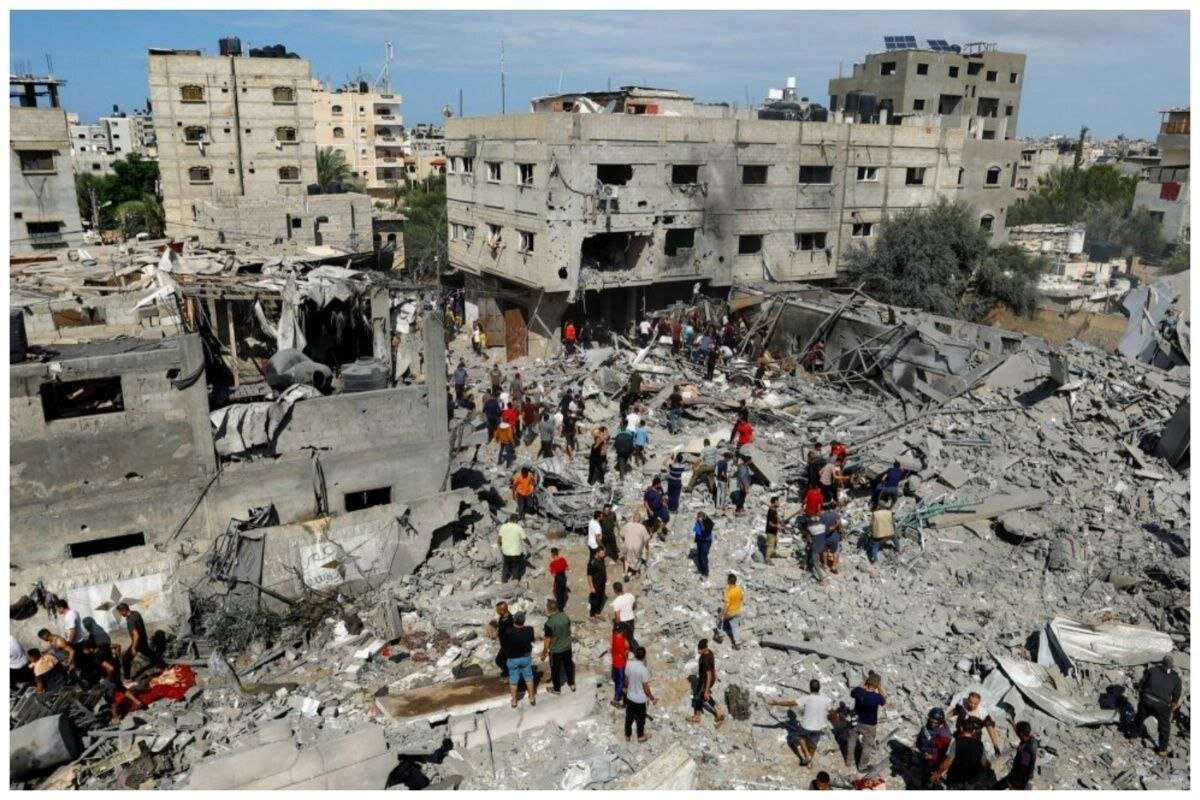World Humanitarian Day act for humanity
World Humanitarian Day: act for humanity
TEHRAN – Each year on August 19, World Humanitarian Day focuses on a theme, bringing together partners from across the humanitarian system to advocate for the survival, well-being, and dignity of people affected by crises, and for the safety and security of aid workers.

However, 2023 was the deadliest year on record for humanitarian workers. 2024 could be even worse as the world is failing humanitarian workers and, by extension, the people they serve.
Despite universally accepted international laws to regulate the conduct of armed conflict and limit its impact, violations of these laws continue unabated, unchallenged, and unchecked. And while civilians, including aid workers, pay the ultimate price, the perpetrators continue to evade justice.
This failure of those in power cannot be allowed to continue. Attacks on humanitarian workers and humanitarian assets must stop. Attacks on civilians and civilian infrastructure must stop.
This World Humanitarian Day demands an end to these violations and the impunity with which they are committed. It is time for those in power to end impunity and Act For Humanity.
WHD 2024 efforts will confront the normalization of attacks on civilians, including humanitarians, and impunity under International Humanitarian Law (IHL).
The aim is to build public support to help pressure parties to conflict and world leaders to take action to ensure the protection of civilians, including humanitarians, in conflict zones.
A bomb attack on the Canal Hotel in Baghdad, Iraq, on August 19, 2003, killed 22 humanitarian aid workers, including the UN Special Representative of the Secretary-General for Iraq, Sergio Vieira de Mello. Five years later, the United Nations General Assembly adopted a resolution designating 19 August as World Humanitarian Day (WHD).
Humanitarian situation in Gaza
Beyond the cost of human lives and suffering, and the instability it brings to the wider region, the war in Gaza has had serious repercussions for international humanitarian law (IHL) and norms around humanitarian access.
Since the beginning of the current conflict, on October 7, 2023, humanitarian aid for civilians entering Gaza has been far less than what is needed, with hardly any of it reaching the north.
Tight restrictions on aid goods, equipment, and personnel allowed to cross into Gaza have severely limited operational capacity for distribution, and there is no protected operational space for humanitarian efforts.
In the first six months, more than 30,000 civilian deaths included over 150 aid workers, an unprecedented number for a single context in such a short period.
The mounting scarcity, desperation, and breakdown of civil order have meant that the small amount of aid coming into Gaza on trucks is often seized before it can be distributed in a safe and principled way.
People are now struggling to meet basic survival needs, with the first deaths of children from acute dehydration and malnutrition reported in early March 2024.
Safe zone in Gaza reduced to only 11 percent
The United Nations Relief and Works Agency (UNRWA) for Palestine Refugees says Israel’s new evacuation orders in the Gaza Strip have shrunk to only 11 percent of the so-called humanitarian zone for Palestinians in the besieged territory, Press TV reported.
UNRWA released the figure in an X post on Saturday, a day after the Israeli military gave Gaza residents sheltering in the safe zone in north Khan Yunis and east Deir al-Balah an order to leave in just a few hours.
The occupation’s army also issued another evacuation order for Maghazi and Zawayda refugee camps in central Gaza.
“Thousands of families continue to be displaced in Gaza as Israeli authorities issue new evacuation orders,” UNRWA said.
“The so-called ‘humanitarian zone’ has shrunk to just 11 percent of the Gaza Strip, causing chaos and fear among the displaced. They have nowhere safe to go.”
The UN agency for Palestinian refugees also renewed its call for an immediate ceasefire in Israel’s genocidal war on Gaza.
Separately on Saturday, UNRWA Communications Officer Louise Wateridge said in an X post that Israel’s repeated displacement orders have left people “trapped in this endless nightmare.”
Meanwhile, rescue services in Gaza estimated that Israel’s latest shrinking of the safe zone in Gaza puts the lives of some 450,000 displaced Palestinians at risk amid a worsening humanitarian disaster there.
The Palestinian Hamas resistance group called the Israeli evacuation orders “a direct continuation of the policy of collective punishment of Gazans,” saying Israel is using dispossession as a weapon against civilians.
People in Gaza say that everywhere designated a safe place has already been hit by the Israeli military and that there is no safe place in the Palestinian territory.
Israel waged its brutal Gaza onslaught on October 7, 2023, after Hamas carried out its historic operation against the occupying entity in retaliation for the regime’s intensified atrocities against the Palestinian people.
So far, the Tel Aviv regime has killed at least 40,074 Palestinians, mostly women and children, and injured 92,537 others.
source: tehrantimes.com